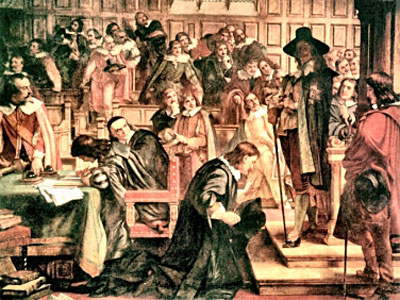Ship money was a medieval tax levied in England during times of war in order to fund the equipping of a navy. It was traditionally only assessed on the inhabitants of coastal areas and it was one of several taxes that English monarchs could levy by their prerogative right without the approval of Parliament. In 1619 James I levied £40,000 of ship money on London and other seaport towns without arousing any popular opposition.
The attempt by King Charles I from 1634 onwards to levy ship money during peacetime and to extend it, without Parliamentary approval, to the inhabitants of the inland counties of England provoked increasingly fierce resistance, and was one of the grievances of the English propertied class in the lead-up to the English Civil War.













